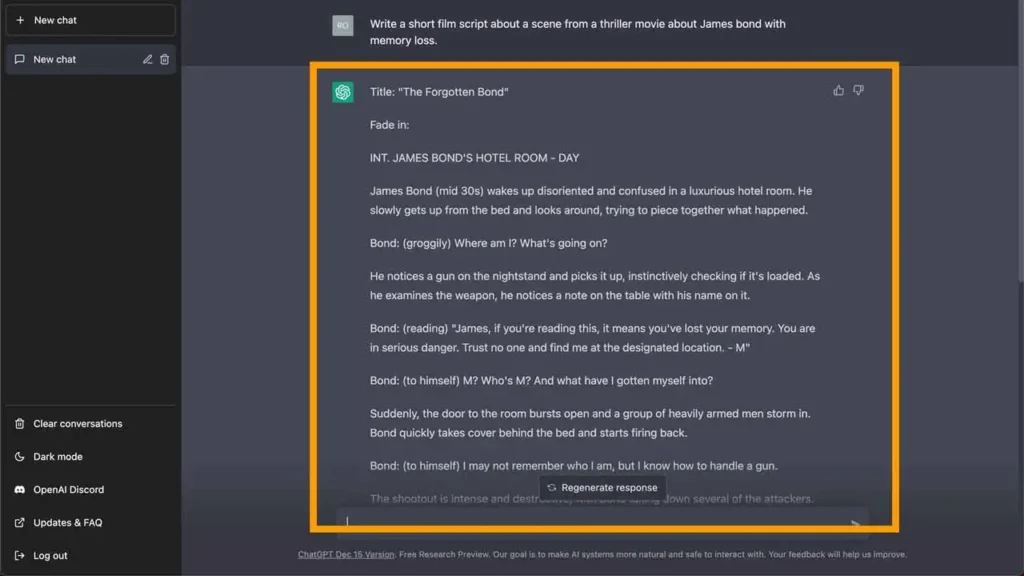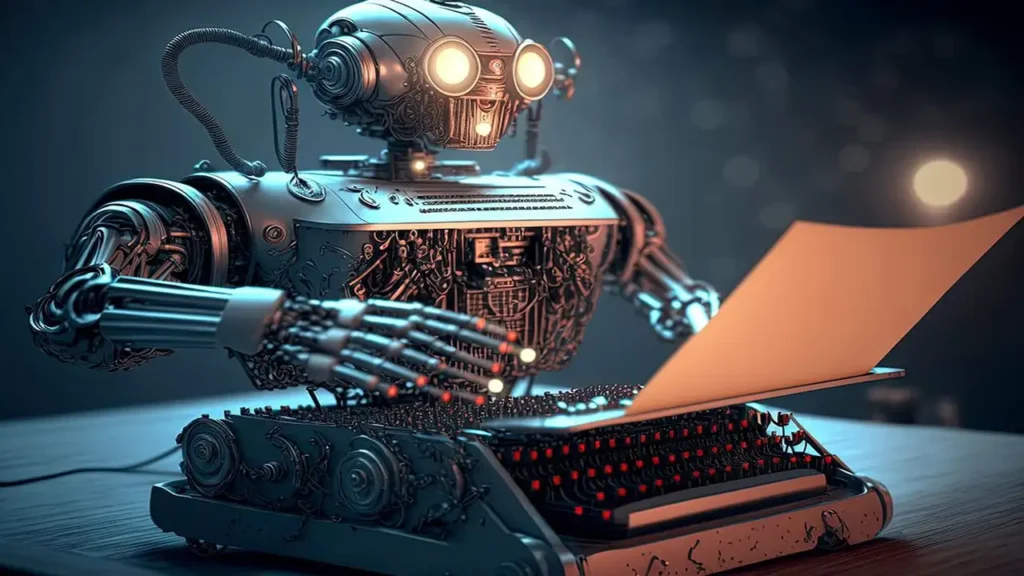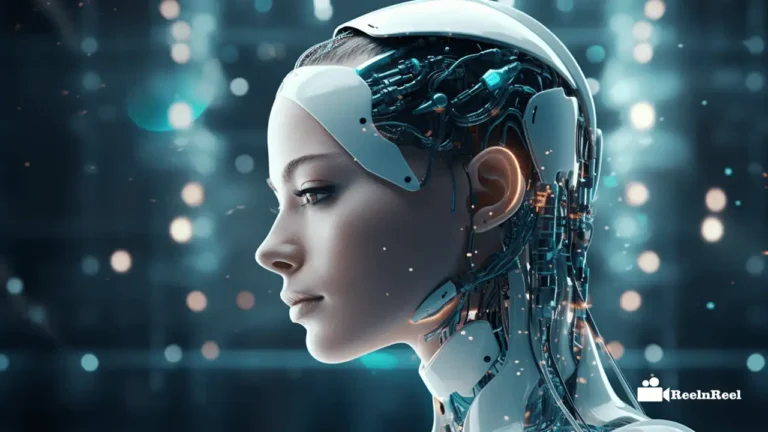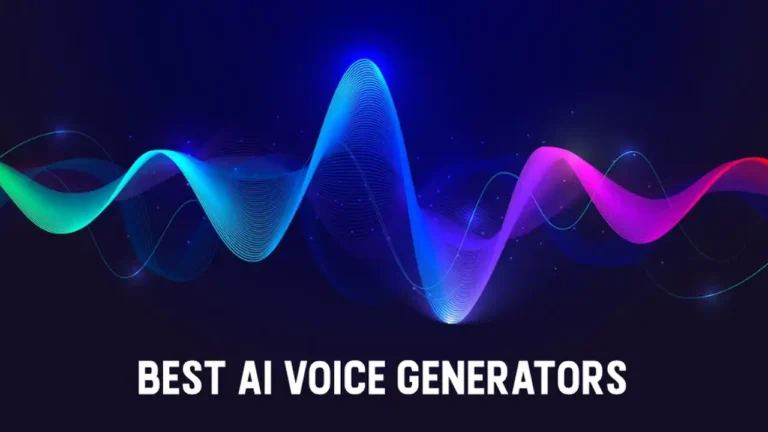Unleashing Creativity: How AI Story Generators are Revolutionizing Writing
- The Emergence of AI in Creative Writing
- Harnessing the Power of AI for Enhanced Creativity
- The Diversity and Adaptability of AI story Generators Content
- Enhancing the Writing Process with AI Tools
- The Ethical Considerations of AI in Writing
- The Future of Storytelling with AI
- The Impact of AI on Traditional Writing Practices
- Tailoring Stories to Audiences with AI’s Help
- The Role of AI in Editing and Refining Content
- Collaborative Storytelling: Writers and AI in Harmony
- Overcoming the Challenges of AI in Writing
- Embracing the New Era of Digital Storytelling
- Maximizing Creativity: AI’s Role in Genre-Bending Narratives
- AI in Writing: Beyond Fiction
- Customizing Content for Global Audiences
- The Evolution of Storytelling Techniques with AI
- Preparing Writers for the AI Revolution in Writing
- Ethical Use of AI in Creative Endeavors
- Conclusion
- FAQs: AI Story Generators and Their Impact on Writing
In the realm of creative writing, a transformative wave is cresting. AI story generators, intricate systems powered by advanced algorithms and machine learning techniques, are reshaping how writers approach the craft of storytelling. These digital tools are not just auxiliary aids; they are at the forefront of a creative revolution, redefining the boundaries of imagination and narrative structure.
The Emergence of AI in Creative Writing
The integration of Artificial Intelligence in creative writing marks a significant milestone. Historically, storytelling has been an inherently human endeavor, shaped by personal experiences and cultural narratives. However, AI story generators are introducing a new dimension to this age-old craft. By analyzing vast datasets of literature and learning from an array of writing styles, these systems are equipped to generate stories that are both unique and reflective of a wide range of human emotions and experiences.
Harnessing the Power of AI for Enhanced Creativity
AI story generators serve as a catalyst for creativity. Writers, both amateur and professional, can utilize these tools to overcome common hurdles such as writer’s block or lack of inspiration. By providing suggestions for plot development, character arcs, and even dialogues, AI assists in fleshing out stories that might otherwise remain dormant in a writer’s imagination.
The Diversity and Adaptability of AI story Generators Content
One of the most striking aspects of AI story generators is their ability to produce diverse content. Whether it’s science fiction, fantasy, romance, or historical fiction, these systems are adept at creating narratives across various genres. This adaptability makes AI tools invaluable for writers looking to explore new territories or seeking inspiration for unfamiliar genres.

Enhancing the Writing Process with AI Tools
In the writing process, AI story generators can be employed at various stages. From initial brainstorming to the development of complex storylines, these tools can provide insights and suggestions that enrich the narrative. They are particularly useful in expanding plot points, developing nuanced characters, and creating compelling settings.
The Ethical Considerations of AI in Writing
As with any technological advancement, the use of AI in creative writing raises ethical considerations. The authenticity of AI-generated content and the role of AI in the creative process are subjects of ongoing debate. It is crucial to strike a balance where AI serves as a tool for enhancing human creativity, rather than replacing it.
The Future of Storytelling with AI
Looking ahead, the potential of AI story generators in the field of writing is immense. These tools are not only refining the way stories are crafted but are also opening doors to uncharted narrative possibilities. The future of storytelling is one where human creativity and AI innovation coalesce, leading to a richer, more diverse literary landscape.
The Impact of AI on Traditional Writing Practices
The advent of AI story generators is not just a technological leap; it’s a cultural shift in how we perceive the act of writing. Traditionally, writing has been viewed as a solitary, often introspective endeavor. AI, however, introduces a collaborative element to this process. Writers can engage with AI as a partner, benefiting from its insights while still infusing their unique voice and perspective into the narrative. This synergy between human intuition and AI’s analytical prowess is creating a new paradigm in storytelling.
Tailoring Stories to Audiences with AI’s Help
Another remarkable facet of AI in writing is its ability to tailor stories to specific audiences. By analyzing reader preferences and trends, AI tools can guide writers in creating content that resonates more deeply with their intended audience. This not only enhances reader engagement but also opens up new avenues for writers to explore themes and genres that align with their readers’ interests.
The Role of AI in Editing and Refining Content
AI’s role extends beyond the initial creation of content. These tools are increasingly sophisticated in editing and refining written work. From grammar checks to style suggestions, AI can help polish a manuscript, ensuring clarity, coherence, and stylistic consistency. This support is invaluable, particularly for writers looking to hone their craft and produce professionally polished works.
Collaborative Storytelling: Writers and AI in Harmony
The concept of collaborative storytelling, where writers and AI work in tandem, is gaining traction. In this model, AI’s role is not to replace the writer but to augment their capabilities. By providing different narrative paths, character development ideas, and even alternative endings, AI enables writers to explore a multitude of creative possibilities that might have been otherwise overlooked.
Overcoming the Challenges of AI in Writing
While the benefits of AI in creative writing are substantial, there are challenges to navigate. Ensuring that AI-generated content maintains a sense of authenticity and emotional depth is paramount. Writers need to remain vigilant, ensuring that the use of AI enhances the human element of storytelling rather than diluting it.

Embracing the New Era of Digital Storytelling
As we embrace AI in the realm of writing, we are not just witnessing a technological evolution but a cultural one. The narratives produced in this new era will be a testament to the collaborative power of human creativity and AI ingenuity. This fusion promises to enrich the world of storytelling, offering readers and writers alike an expanded universe of narrative possibilities.
Maximizing Creativity: AI’s Role in Genre-Bending Narratives
One of the most exciting developments in AI-assisted writing is the emergence of genre-bending narratives. AI story generators, with their extensive database of literary styles and genres, can suggest unique combinations and crossovers that might not occur to human writers. This leads to the creation of stories that defy traditional genre boundaries, offering readers novel and unexpected experiences.
AI in Writing: Beyond Fiction
The impact of AI is not confined to fictional narratives. Its applications extend to non-fiction, journalism, and academic writing. In these fields, AI can assist in data analysis, structuring complex information, and even suggesting narrative formats that make dense topics more accessible to readers. This broadens the scope of AI’s utility in writing, making it a versatile tool for various types of content creators.
Customizing Content for Global Audiences
In an increasingly globalized world, the ability to customize content for different cultures and languages is crucial. AI tools, with their advanced language processing capabilities, can assist writers in adapting their stories for diverse global audiences. This not only includes language translation but also cultural contextualization, ensuring that narratives resonate across cultural boundaries.
The Evolution of Storytelling Techniques with AI
As AI continues to evolve, so too do the storytelling techniques it enables. AI can suggest unconventional narrative structures, experimental storytelling methods, and innovative character arcs. This not only challenges writers to push their creative boundaries but also offers readers new and engaging ways to experience stories.
Preparing Writers for the AI Revolution in Writing
As the field of AI-assisted writing grows, it’s important for writers to stay informed and adapt to these changes. Workshops, courses, and resources on how to effectively collaborate with AI tools are becoming increasingly important. Writers who embrace these tools and learn to harness their capabilities will find themselves at the forefront of this new era in storytelling.
Ethical Use of AI in Creative Endeavors
While exploring the possibilities of AI in writing, it’s imperative to consider the ethical implications. Issues like intellectual property, the originality of AI-generated content, and the transparency of AI’s role in the creative process need careful consideration. Ensuring ethical use of AI in writing not only protects the integrity of the craft but also maintains the trust of readers and the wider literary community.
Conclusion
AI story generators are not just changing how stories are written; they are revolutionizing what stories can be. From genre-bending narratives to global storytelling, the possibilities are as limitless as the imagination. As we continue to explore this synergy between human creativity and AI, we’re not just witnessing a shift in writing practices but a redefinition of storytelling itself. In this new chapter of literary history, the stories we tell and how we tell them are being transformed, opening doors to uncharted creative territories.
10 Best Free AI Voice Generators For Incredible Audio








